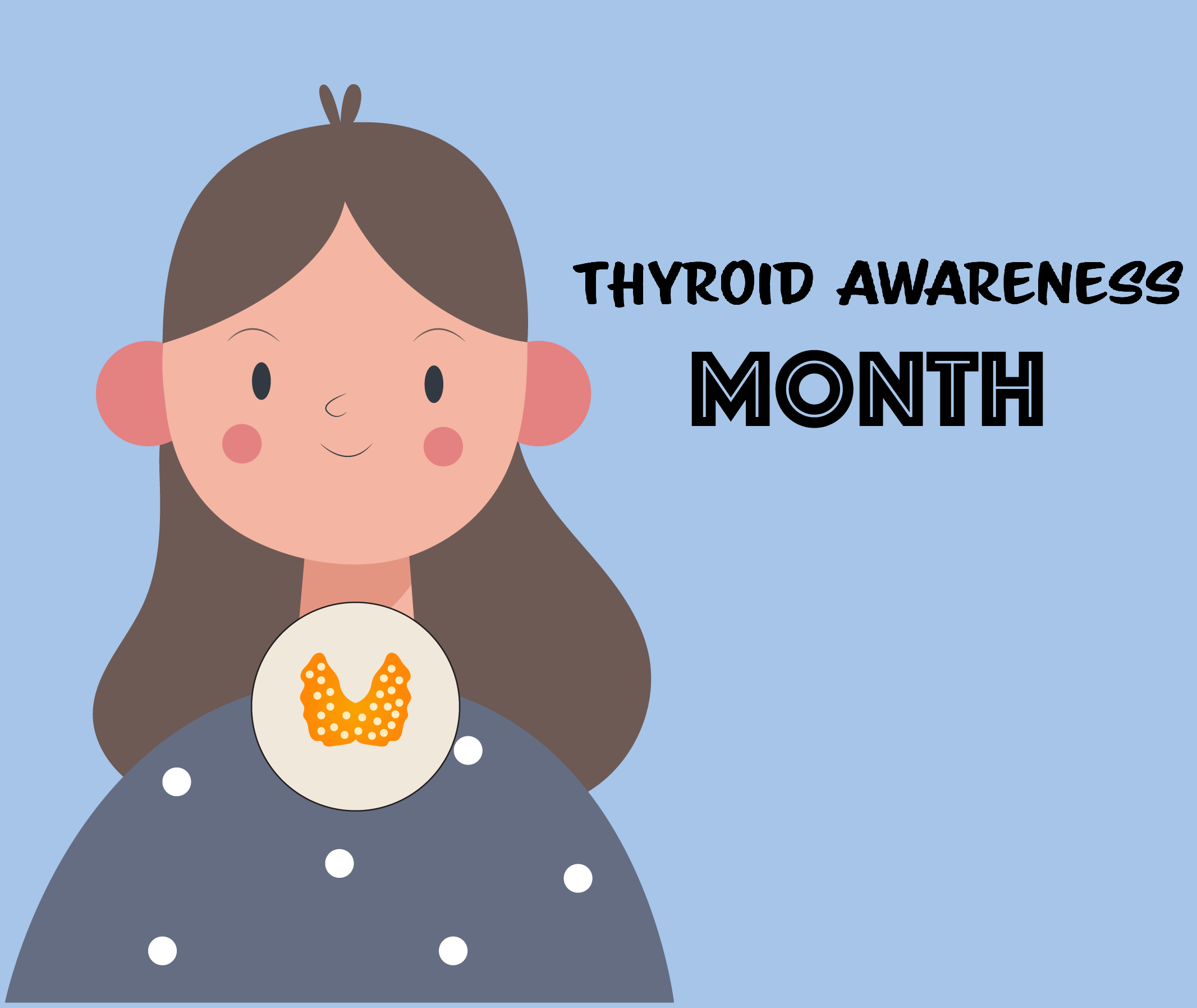
According to the American Thyroid Association approximately 20 million Americans have some form of thyroid cancer. It is important to discuss, because 60% of those with a thyroid disease are unaware of their condition. Today we will discuss what the thyroid is and its function. We will also cover the warning signs and screenings available. If you have any questions or concerns regarding your thyroid, please contact us and schedule an appointment with our endocrinologists and endocrine surgeon experts in our center for Endocrine Tumors and Disorders.
What is the thyroid and what is its function?
The thyroid gland is a butterfly-shaped endocrine gland located in the lower front of the neck. The role of the thyroid is to make thyroid hormones. These hormones are secreted into the blood and then carried throughout the body. The Thyroid controls the body’s metabolism, increases heart rate and affects how fast things move through the body such as food, bone loss and sugar. It is thought to be the most important endocrine organ!
Thyroid facts:
- Women are 5-8 times more likely than men to experience thyroid problems.
- 1 in 8 women will develop a thyroid disorder in her lifetime.
- The cause of thyroid problems is largely unknown.
- Cardiovascular diseases, osteoporosis and infertility are serious conditions that can occur if thyroid disease goes undiagnosed.
- It is important for pregnant women to be diagnosed and treated adequately. If not, risks include miscarriage, preterm delivery and severe developmental problems in their children.
- Most thyroid diseases are life-long and can be managed with proper medical attention.
- Thyroid nodules are very common and are present in 60-70% of middle-aged women.
- Most thyroid cancers respond to treatment, but a small percentage can be very aggressive.
Early warning signs of thyroid problems:
- Overactive thyroid: Racing heart rate, Palpitations, Anxiety, Insomnia, Nervousness, Weight loss with increased appetite, Excessive sweating/heat intolerance, Muscle weakness.
- Underactive thyroid: Fatigue / sluggishness (mental and physical), Cold intolerance, Constipation, Hair loss, Weight gain, Depression.
Signs of thyroid nodules/cancer:
- An unusual lump or swelling in the neck.
- Other warning signs include a new cough, hoarseness, swollen glands and a new persistent cough.
Screenings for thyroid dysfunction:
There are blood tests used to measure thyroid hormones but not all are useful in all situations. The following are tests used to evaluate thyroid function.
- TSH tests measure the TSH level in the blood which is the best way to initially test thyroid function. Changes in TSH can serve as an early warning before levels become too high or too low.
- T4 tests measure T4 which is the main form of thyroid hormone circulating in the blood. Levels help determine if a patient has hypo or hyperthyroidism.
- T3 tests are useful to diagnose hyperthyroidism. People who are hyperthyroid will have an elevated T3 level.
- Free T3 tests measure free T3 but they are often unreliable and not typically helpful.
Diagnosing and Treating a Thyroid Condition:
We have a variety of ways to diagnose and treat thyroid conditions. Below is a list of these procedures and more information can be found using the following link.
- Thyroid ultrasound
- Thyroid biopsies
- Parathyroid imaging
- Parathyroidectomy
- Thyroidectomy and neck dissection
- Laparoscopic and open adrenalectomy
- Radioactive iodine
- Hormonal therapy
- Thyroid Radiofrequency Ablation
- Radiation oncology
Visit or endocrine diagnosis and treatment pages to learn more about available tests and treatments for diagnosing and treating thyroid dysfunction.
When talking to your doctor:
- Be honest and upfront about your symptoms. Do not feel embarrassed!
- Write down your questions and concerns and bring them to your appointment.
- If possible, bring a family member or close friend. Sometimes it helps to have two sets of ears when hearing from your doctor.
- Take notes so you can look them over at a later time.
- Learn how to access your records, get test results and a list of your medications. Many of these things can be found electronically.
- Make sure you have your doctor’s contact information and find out the best way to communicate.
- Remember no question is too small! Your doctor is there to answer all of your questions and make you feel confident and comfortable with the care you will be receiving.
Schedule an appointment
Please submit an online appointment request or call 310-829-8751 if you have any questions, need a diagnosis, treatment or second opinion.
Interested in learning more?
Dr. Melanie Goldfarb, endocrine surgeon and Director of the Center for Endocrine Tumors and Disorders, explains symptoms, diagnosis, and types of thyroid cancer.
Socially distant ways to stay educated and help spread awareness about the thyroid:
- Watch The Butterfly in Your Neck: Everything you Need to Know About Thyroid Disorders and Thyroid Cancer webinar.
- Wear pink, purple and teal to promote thyroid cancer awareness.
- Subscribe and receive newsletters from the American Thyroid Association.
- Learn about clinical trials and current research.
- Donate to help with research.
- Follow on Twitter @thryroidfriends
- Use the hashtag #thyroidawareness when sharing information and education about the thyroid
Resources:
- https://www.nih.gov/institutes-nih/nih-office-director/office-communications-public-liaison/clear-communication/talking-your-doctor
- https://www.thyroid.org/media-main/press-room/

